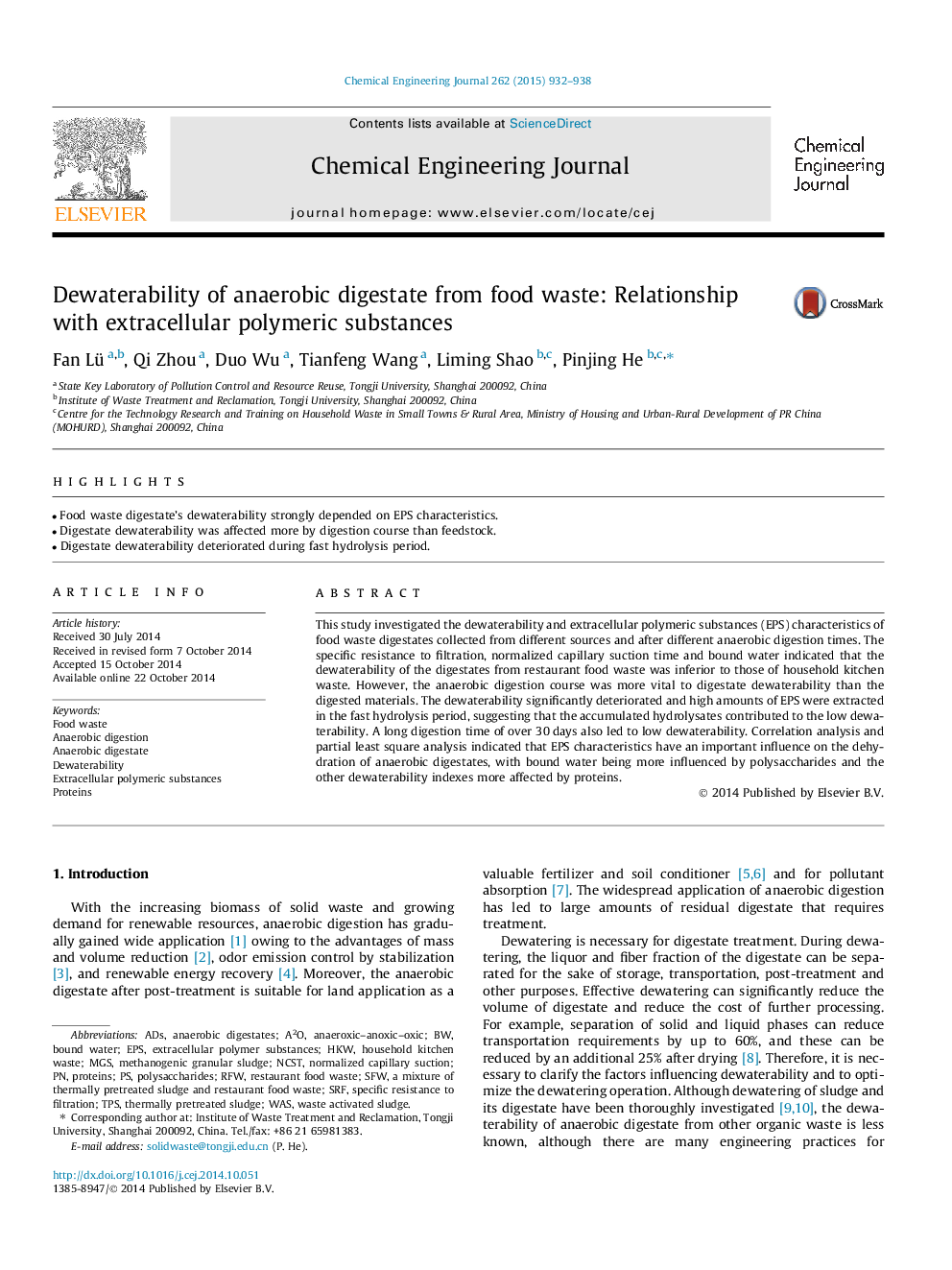| Article ID | Journal | Published Year | Pages | File Type |
|---|---|---|---|---|
| 6585577 | Chemical Engineering Journal | 2015 | 7 Pages |
Abstract
This study investigated the dewaterability and extracellular polymeric substances (EPS) characteristics of food waste digestates collected from different sources and after different anaerobic digestion times. The specific resistance to filtration, normalized capillary suction time and bound water indicated that the dewaterability of the digestates from restaurant food waste was inferior to those of household kitchen waste. However, the anaerobic digestion course was more vital to digestate dewaterability than the digested materials. The dewaterability significantly deteriorated and high amounts of EPS were extracted in the fast hydrolysis period, suggesting that the accumulated hydrolysates contributed to the low dewaterability. A long digestion time of over 30Â days also led to low dewaterability. Correlation analysis and partial least square analysis indicated that EPS characteristics have an important influence on the dehydration of anaerobic digestates, with bound water being more influenced by polysaccharides and the other dewaterability indexes more affected by proteins.
Keywords
Related Topics
Physical Sciences and Engineering
Chemical Engineering
Chemical Engineering (General)
Authors
Fan Lü, Qi Zhou, Duo Wu, Tianfeng Wang, Liming Shao, Pinjing He,
